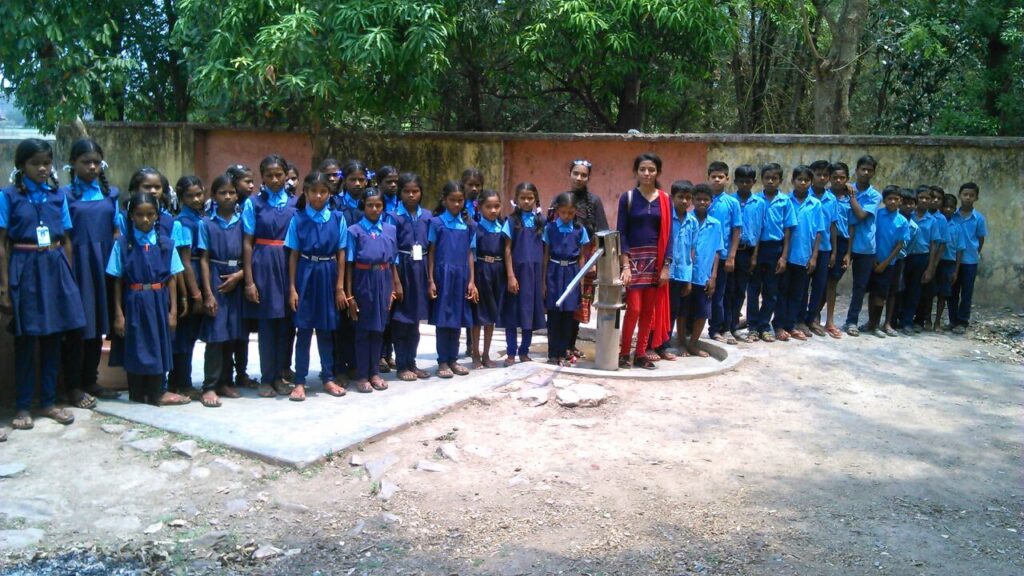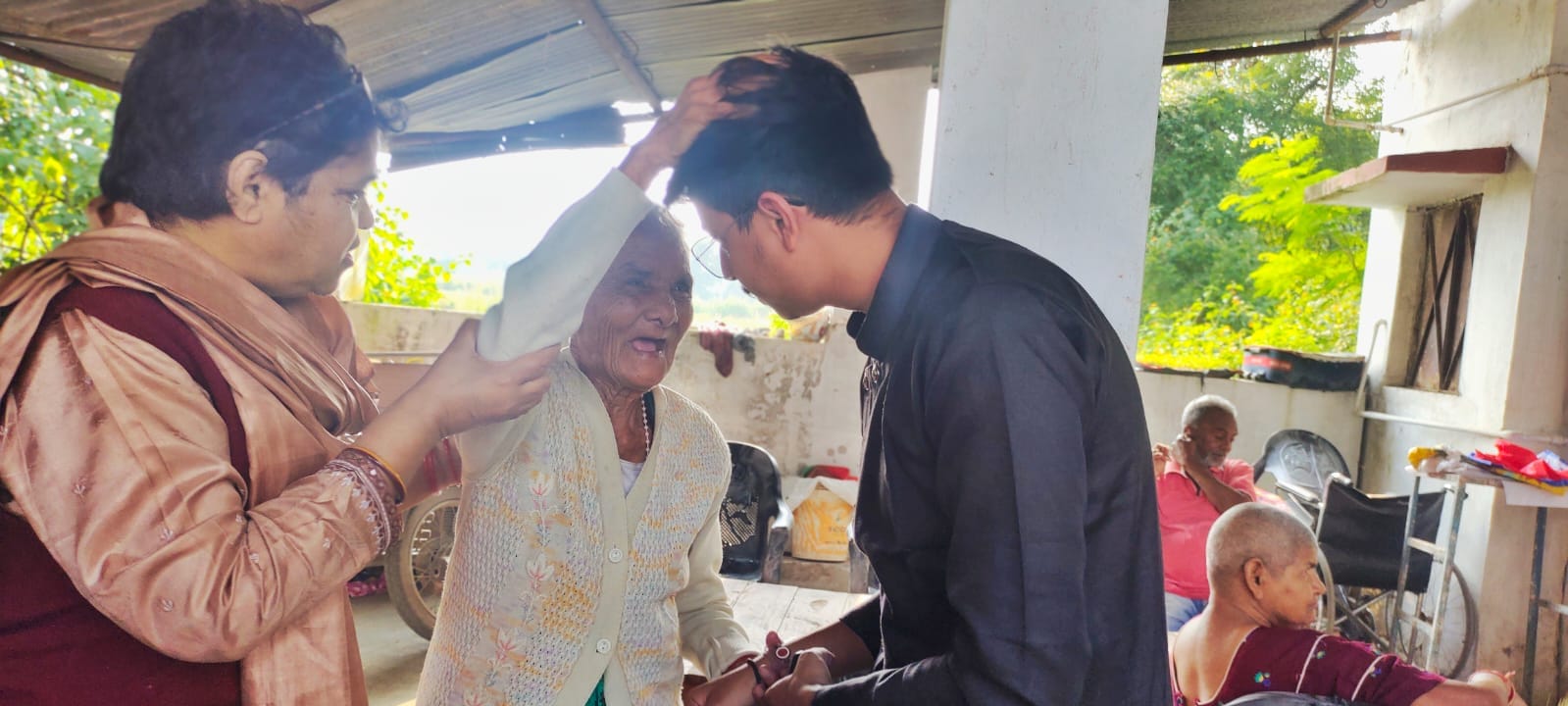Opportunities for social workers in India
The need for social workers in India is growing every day. Additionally, graduates of the social work discipline might make a significant difference in someone’s life by assisting or directing them. Continue reading to learn more about the master’s in social work programme.
Table of Contents
Meaning of opportunities for social workers in India
Opportunities for social workers in India refer to various avenues and possibilities where individuals trained in the field of social work can contribute their skills and expertise to address social issues, promote well-being, and create positive change within Indian society. These opportunities encompass a wide range of settings and roles that allow social workers to make a meaningful impact on individuals, families, communities, and society as a whole.
List of 12 areas or opportunities for social workers in India
- NGOs and Non-Profit Organizations: Many non-governmental organizations (NGOs) and non-profit organizations in India focus on areas such as education, healthcare, women’s empowerment, child welfare, and poverty alleviation. Social workers can work directly with these organizations to implement programs, provide support, and advocate for marginalized populations.
- Community Development: Social workers can engage in community development projects aimed at improving infrastructure, access to basic services, and overall quality of life in rural and urban areas.
- Healthcare Institutions: Social workers play a crucial role in healthcare settings by providing psychosocial support to patients and their families, assisting with medical decision-making, and helping patients navigate the healthcare system.
- Schools and Educational Institutions: Social workers in schools address students’ emotional, behavioral, and developmental needs, promote anti-bullying initiatives, and collaborate with teachers and parents to create a conducive learning environment.
- Counseling and Mental Health Centers: Social workers offer counseling services to individuals and families dealing with mental health challenges, substance abuse, and other psychosocial issues.
- Government Agencies: Social workers can work within government departments focused on social welfare, child protection, women’s empowerment, and other areas to develop and implement policies that benefit vulnerable populations.
- Disaster Relief and Rehabilitation: During natural disasters and emergencies, social workers are involved in providing immediate relief, psychosocial support, and long-term rehabilitation efforts.
- Geriatric Care and Senior Centers: Social workers address the needs of the elderly population by providing counseling, assistance with healthcare decisions, and support for families and caregivers.
- Human Rights Organizations: Social workers contribute to human rights advocacy, fight against discrimination, and work to protect the rights of marginalized groups.
- Research and Academia: Social workers can engage in research studies to better understand societal issues, develop evidence-based interventions, and contribute to the academic field of social work.
- Policy Analysis and Advocacy: Social workers analyze policies, propose changes, and advocate for legislation that promotes social justice, equality, and the well-being of vulnerable populations.
- Corporate Social Responsibility (CSR): Many companies engage in CSR initiatives, and social workers can collaborate with businesses to design and implement projects that have a positive social impact.
These opportunities reflect the diverse and impactful roles that social workers can undertake in India to address societal challenges, promote social inclusion, and contribute to positive social change.

Objectives of social workers in India
The objectives of social workers in India encompass a wide range of goals aimed at addressing social issues, promoting well-being, and creating positive change within the country. These objectives reflect the core principles and values of social work and emphasize the importance of supporting individuals, families, communities, and society as a whole.
Some key objectives of social workers in India include:
- Empowerment: Social workers aim to empower individuals and communities by providing them with the necessary skills, resources, and knowledge to overcome challenges and improve their quality of life.
- Poverty Alleviation: Social workers work towards reducing poverty and inequality by advocating for economic opportunities, access to education, healthcare, and social services for marginalized and vulnerable populations.
- Education and Awareness: Social workers focus on raising awareness and promoting education about social issues, human rights, gender equality, and other important topics within communities.
- Health and Well-being: Social workers contribute to the physical and mental well-being of individuals and families by providing counseling, support, and advocacy in healthcare settings.
- Child Welfare: Social workers work to protect the rights and well-being of children by addressing issues such as child labor, abuse, neglect, and ensuring access to education and healthcare.
- Women’s Empowerment: Social workers support women’s empowerment through initiatives that promote gender equality, women’s rights, and access to education, healthcare, and economic opportunities.
- Elderly Care: Social workers address the needs of the elderly by providing emotional support, healthcare assistance, and advocating for their rights and dignity.
- Disaster Relief and Rehabilitation: Social workers play a critical role in providing immediate relief and long-term rehabilitation efforts during natural disasters and emergencies.
- Community Development: Social workers engage in community-based initiatives that promote infrastructure development, access to clean water, sanitation, and other essential services.
- Human Rights and Social Justice: Social workers advocate for human rights, social justice, and the rights of marginalized and vulnerable populations, working to eliminate discrimination and promote equality.
- Policy Advocacy: Social workers analyze policies, propose changes, and advocate for legislation that supports social welfare, human rights, and the well-being of communities.
- Advocacy for Social Change: Social workers strive for positive societal change by advocating for policy reforms, social inclusion, and the creation of inclusive and equitable environments.
- Mental Health Support: Social workers provide counseling, therapy, and support for individuals and families dealing with mental health challenges, promoting emotional well-being.
- Substance Abuse Prevention and Treatment: Social workers contribute to preventing substance abuse and addiction, as well as supporting individuals in recovery.
- Empowering Marginalized Groups: Social workers work closely with marginalized and disadvantaged groups, such as LGBTQ+ individuals, differently-abled individuals, and refugees, to empower them and ensure their rights are respected.
These objectives reflect the diverse and impactful roles that social workers in India undertake to address societal challenges, promote social well-being, and contribute to positive social change.
Values for social workers in India
Values are fundamental principles that guide the ethical behavior, attitudes, and actions of social workers in India. These values form the foundation of their practice and interactions with clients, colleagues, and communities. Some key values for social workers in India include:
- Social Justice: Social workers are committed to promoting fairness, equality, and social justice. They strive to eliminate discrimination, oppression, and systemic inequalities, and advocate for the rights of marginalized and vulnerable populations.
- Respect for Dignity and Worth: Social workers recognize and respect the inherent dignity and worth of every individual. They treat clients and communities with respect, sensitivity, and cultural humility.
- Integrity: Social workers uphold honesty, transparency, and ethical conduct in their interactions. They maintain professional boundaries, act with integrity, and hold themselves accountable for their actions.
- Empathy and Compassion: Social workers demonstrate genuine empathy and compassion towards the challenges and experiences of their clients. They create a safe and supportive environment for clients to share their concerns.
- Client Self-Determination: Social workers respect the autonomy and self-determination of clients, allowing them to make informed decisions about their lives and well-being.
- Confidentiality: Social workers protect the privacy and confidentiality of clients, ensuring that sensitive information is handled responsibly and ethically.
- Cultural Competence: Social workers value and respect diverse cultures, beliefs, and perspectives. They work to understand and address the unique needs of individuals and communities from different backgrounds.
- Professional Competence: Social workers continually enhance their knowledge, skills, and expertise through ongoing learning and professional development. They ensure that their interventions are evidence-based and effective.
- Collaboration: Social workers collaborate with clients, colleagues, and other professionals to provide comprehensive and holistic support. They value teamwork and partnership in achieving positive outcomes.
- Advocacy: Social workers are advocates for positive social change. They work to influence policies, systems, and practices that contribute to a more just and equitable society.
- Ethical Decision-Making: Social workers make ethical decisions based on the values of the profession, considering the well-being of clients and the broader community.
- Empowerment: Social workers empower clients by providing them with the tools, resources, and support needed to overcome challenges and improve their lives.
- Non-Judgmental Attitude: Social workers approach clients without judgment, respecting their choices and experiences without imposing their personal beliefs.
- Sensitivity to Trauma and Vulnerability: Social workers recognize and respond to the trauma and vulnerability experienced by clients, providing appropriate support and interventions.
- Commitment to Social Change: Social workers are committed to creating lasting social change by addressing root causes of societal issues and advocating for policies that benefit the well-being of all.
These values guide social workers in India as they work towards creating positive impacts, promoting well-being, and contributing to the advancement of individuals, families, and communities.
